Kilby Historic Site: Step Back In Time
The wooden boardwalk creaks as you climb towards the false-fronted century old general store, elevated above the Fraser River floodplain. This is Kilby Historic Site in Harrison Mills, British Columbia, a surviving remnant of what was once a thriving mill town and railroad stop at the confluence of the Harrison and Fraser Rivers.
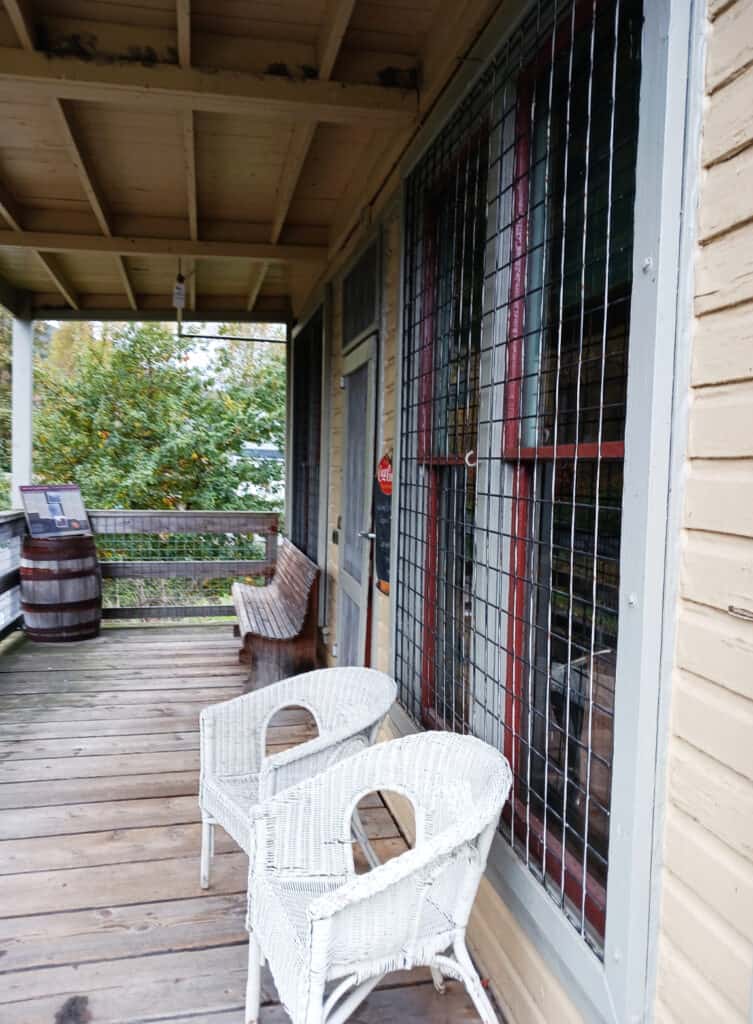
The site originally had more raised boardwalks as they were essential infrastructure in an area that flooded annually when the Fraser River rose until dykes were built in the latter part of the 1920’s. Only the boardwalk to the store remains.
The story here begins in the early 1900s when the lumber boom and the arrival of the Canadian Pacific Railway transformed this riverside location into a bustling community. Thomas and Eliza Kilby arrived in 1903 to operate a boarding house for mill workers.
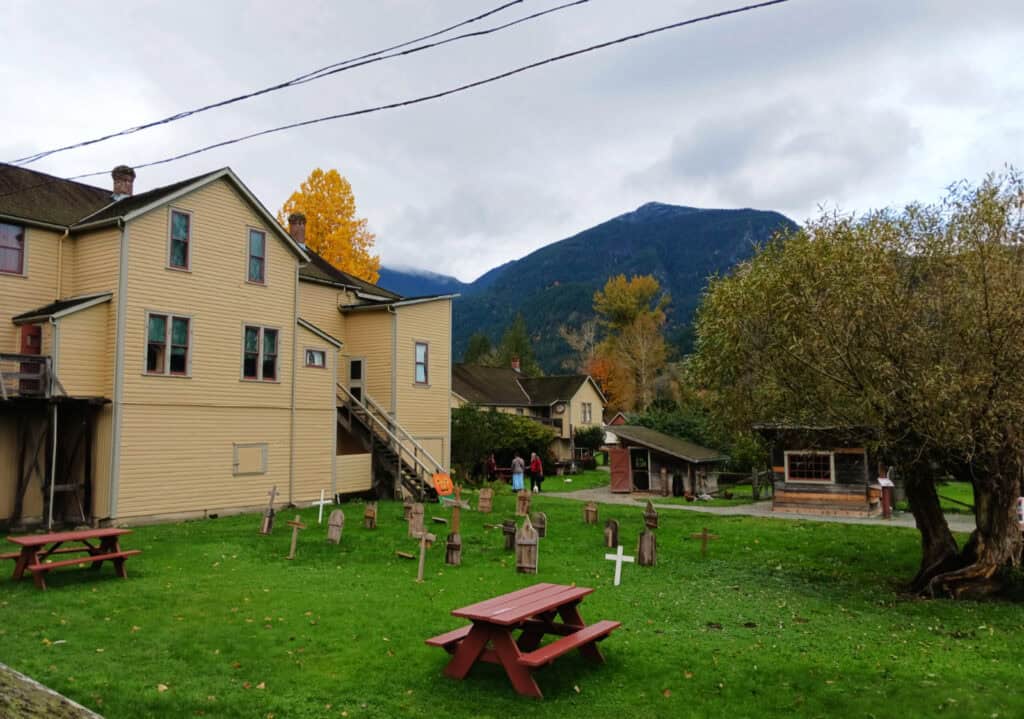
In 1906, they opened the Kilby General Store, a three-story building that would serve as the commercial and social heart of Harrison Mills for decades to come. The store is now the centerpiece of this living history museum.
The entrance to the site is a converted horse barn which now houses a gift shop and café. You’re immediately transported to another era. The staff are in period costume and are living historians who are happy to share about how Thomas Kilby served as postmaster and justice of the peace in addition to running the shop, while Eliza managed the hotel upstairs, which opened in 1908 to house railway workers and travelers.
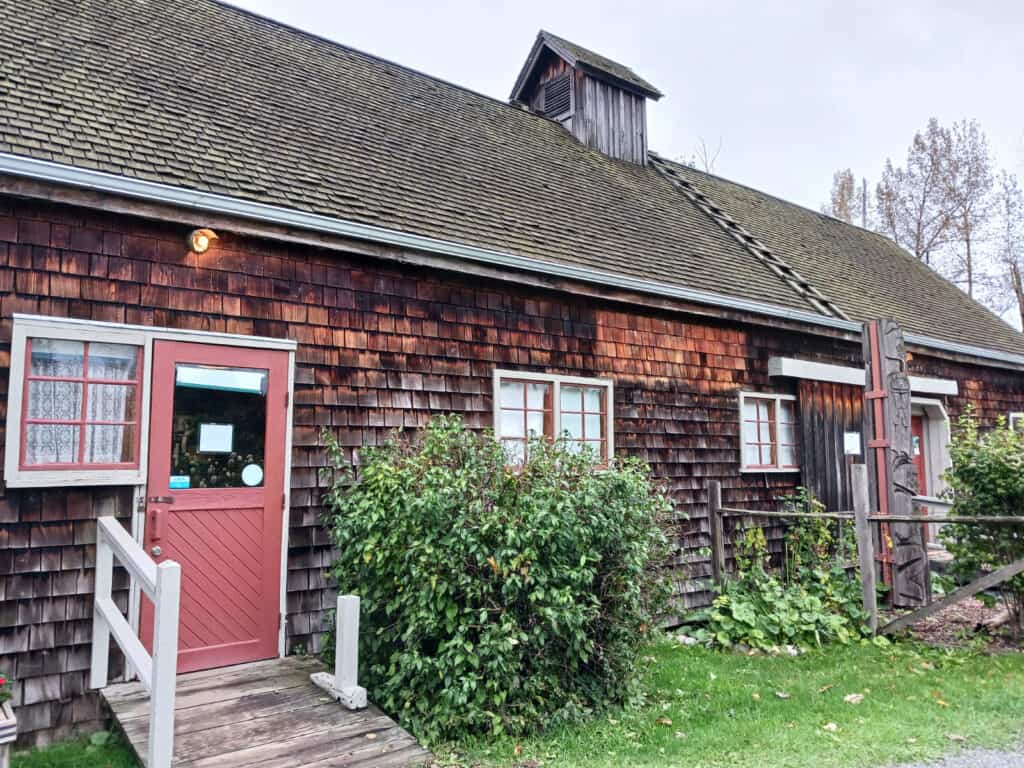
Inside the general store itself, the shelves are lined with original tins & packages exactly as they would have when the store supplied everything a rural family might need—from medicine to tools to household goods. An interpreter behind the counter enthusiastically told the stories of the store and the family, and shared with us that since the Kilby’s never threw anything away much of the goods displayed were actually from the store’s bygone days.
The wooden counters and vintage cash register remain in place, and the postal wickets where Thomas managed the community’s mail service still sit ready for business.
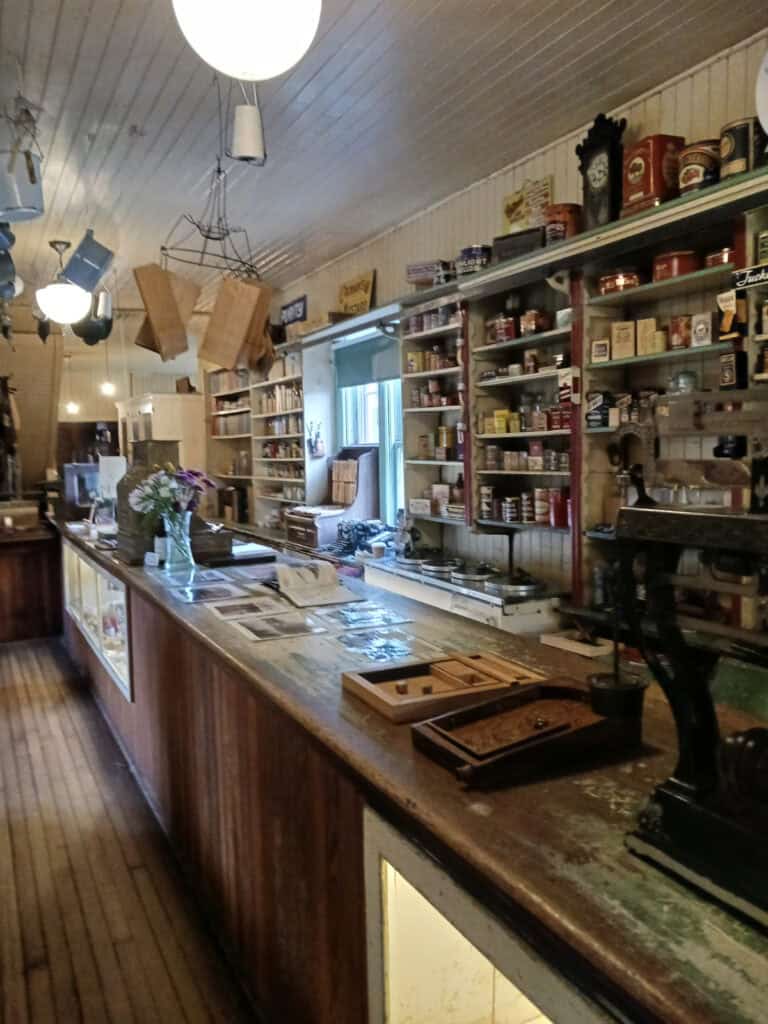
His son Acton and his wife would later run the store and serve as postmaster, continuing the family’s central role in community life.
The Kilby family’s living quarters occupied the back of the building, including a dining room, pantry and kitchen.
Upstairs, the hotel rooms have been restored with period furnishings, while some rooms have been converted into gallery spaces and showcase exhibits about First Nations history, early settlers, and the region’s industrial heritage.
What makes Kilby truly special is its authenticity. When Thomas died in 1922, his son Acton and his wife Jessie took over operations, running the store until the BC government purchased the property in 1972 to preserve it as a museum. That’s over 65 years of continuous Kilby family ownership.
Even after the purchase, Acton continued serving as the site’s first curator, ensuring the transition from working store to living museum preserved the building’s genuine character.
Outside, the five-acre property reveals more layers of rural life. The Kilby Cottage from the 1890s is the oldest structure on site.
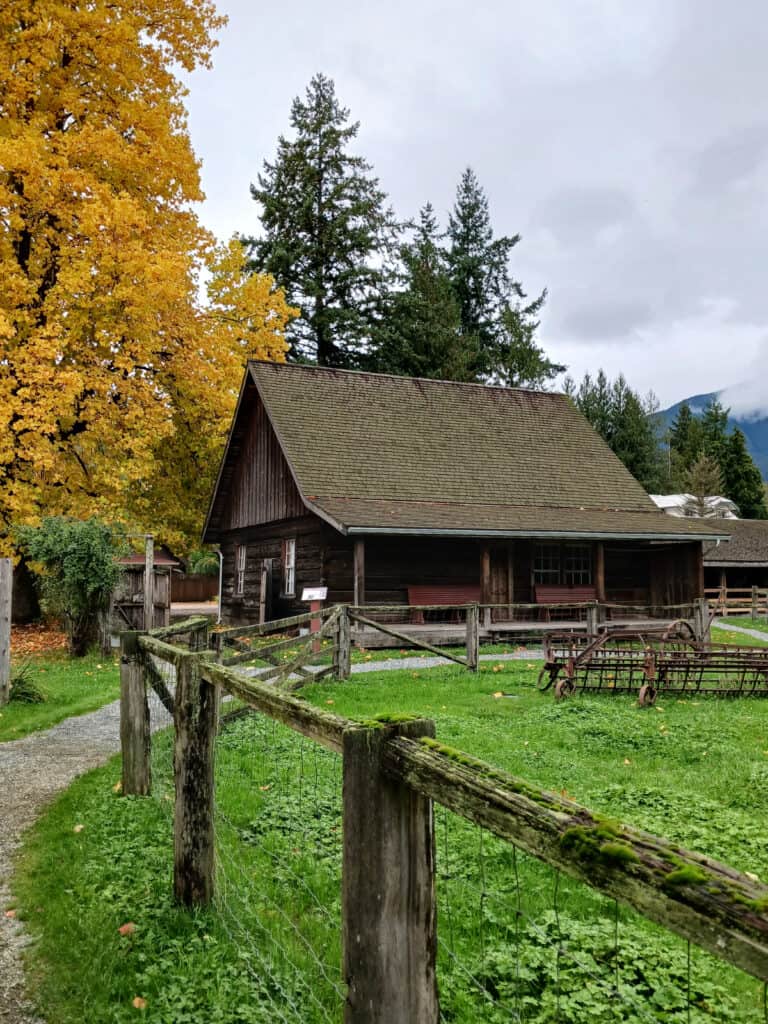
Other buildings include a barn, stable, shed, milk house, chicken coop, and piggery, representing the family’s dairy farming operations.
Chickens, ducks, turkeys, and goats still reside on the grounds, examples of animals that would have populated a 1920s Fraser Valley farm. Children (and adults) can purchase feed bags for a dollar in the gift shop.
During special events, costumed interpreters demonstrate traditional skills like tin piercing, butter churning, and heritage crafts, offering hands-on experiences that transform passive observation into active learning. We were there in October and the yard had been turned into a faux graveyard and interpreters offered spooky stories.
Before leaving, back through the gift shop, stop at the café for homemade soups, fresh sandwiches, pies.
Kilby Historic Site is remarkable because these are the actual buildings where a real family lived, worked, and served their community through boom times and decline. Harrison Mills was once a departure point for the gold rush, the site of a passenger rail station, a lumber mill, and a ferry stop to cross the river to Chilliwack. These days if it wasn’t for this site and neighboring provinicial park, it would be a forgotten slice of farmland.
Visitor Information:
- Location: 215 Kilby Road, Harrison Mills, BC
- Hours: Mid-April to Mid-December Thursday-Sunday 11 am to 4 pm, but check website for up to date hours.
- Time needed: 2 hours
- Distance: Approximately 90 minutes east of Vancouver via Highway 7
